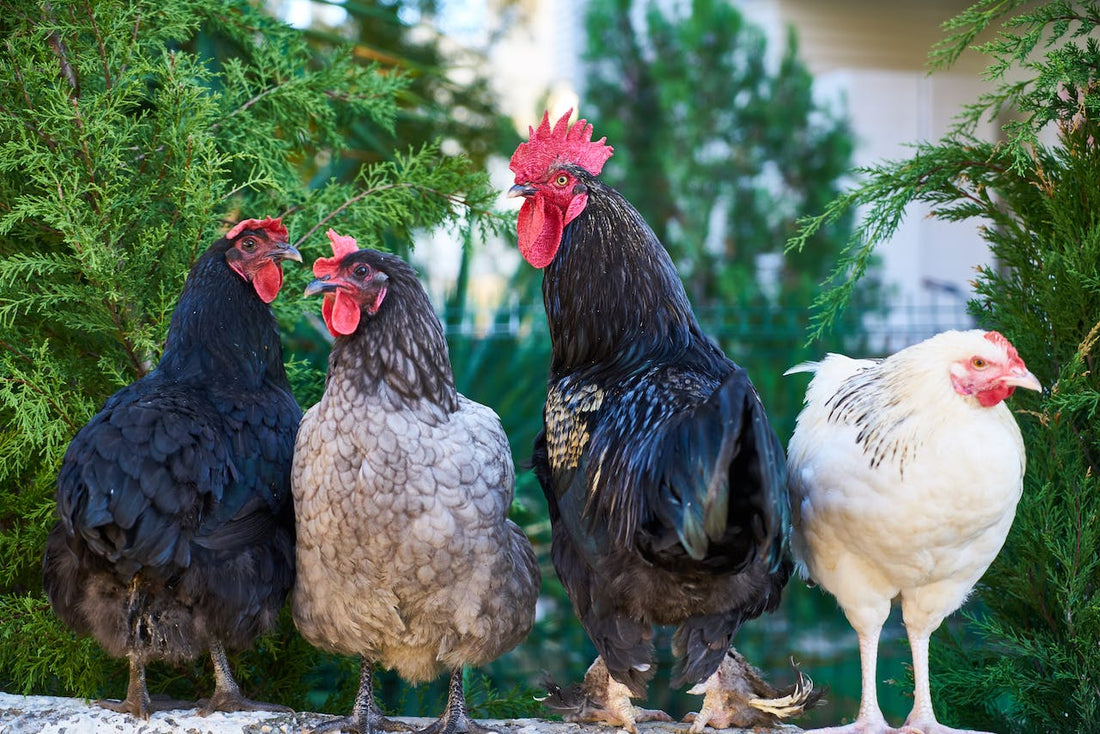Chickens are fascinating creatures, each with their own personality and behaviors. However, sometimes these behaviors can lead to problems, such as picking or pecking among the flock. This blog delves into the causes behind chicken picking, its impact, and practical solutions to mitigate this issue.
Chicken picking, commonly known as feather pecking, is a behavior where chickens peck at the feathers of themselves or others, often leading to feather loss, injury, or in severe cases, death. Understanding the causes and implementing effective solutions is crucial for maintaining a healthy and happy flock.
Identifying Chicken Picking
The first step is recognizing the problem. Chicken picking can manifest in various forms:
Feather Pecking: Chickens peck at each other's feathers, often causing damage.
Vent Pecking: Focused around the vent area, this can be particularly harmful.
Cannibalism: In extreme cases, pecking escalates to cannibalism.
The Root Causes
Several factors can contribute to picking behavior:
Overcrowding: Chickens need space. Overcrowded conditions can lead to stress, triggering picking.
Boredom: A lack of mental and physical stimulation can lead chickens to pick out of boredom.
Nutritional Deficiencies: Imbalances in diet, especially lack of protein, can instigate picking.
Environmental Stressors: Extreme temperatures, poor ventilation, and inadequate light can contribute to stress among chickens.
Pecking Order: Establishing hierarchy can sometimes escalate into aggressive pecking.
Genetics: Some breeds are more predisposed to picking due to their temperament.
Stress and Anxiety in Chickens
Stress plays a significant role in chicken picking. Factors causing stress and anxiety among chickens include:
Changes in the Flock: Introduction of new birds can disrupt the social structure.
Predator Threats: Presence of predators or even the fear of predators can cause anxiety.
Illness: Sick birds are often targets of picking, and illness can also make a chicken more likely to pick.
Poor Nutrition: Lack of key nutrients can lead to stress and abnormal behaviors.
Preventive Measures
Prevention is always better than cure:
Adequate Space: Ensure each chicken has enough room to move, roost, and feed without competition.
Environmental Enrichment: Provide perches, dust baths, and foraging opportunities to keep chickens occupied.
Balanced Diet: A diet rich in all necessary nutrients, especially protein, is vital.
Consistent Routine: Chickens thrive on routine; sudden changes can be stressful.
Regular Health Checks: Monitoring health can prevent disease spread and stress.
Dietary Solutions
Addressing nutritional needs is critical:
Protein-Rich Diet: Incorporating sufficient protein sources helps reduce picking.
Supplements: In some cases, adding supplements like vitamins and minerals can balance deficiencies.
Fresh Greens: Offering greens provides nutrients and enrichment.
Environmental Adjustments
Creating a conducive living environment can reduce stress:
Adequate Shelter: Protection from elements and predators is crucial.
Proper Ventilation: Good air quality prevents respiratory stress.
Controlled Lighting: Too much or too little light can contribute to stress; optimal lighting is key.
Managing the Flock
Understanding social dynamics helps mitigate picking:
Introducing New Birds Carefully: Gradual introductions can ease tension in the flock.
Separating Aggressive Birds: Sometimes, removing a bully can calm the environment.
Observation: Regularly observing the flock can help identify issues early.
Addressing the Issue
If picking occurs, immediate action is required:
Isolation of Affected Birds: To prevent further injury and allow healing.
Review Diet and Environment: Assess and rectify any shortcomings in care.
Consultation with a Vet: Professional advice may be necessary, especially if injury or illness is involved.
Long-Term Strategies
Sustainable solutions for a peaceful coop:
Breeding for Temperament: Choosing breeds known for their docile nature.
Ongoing Enrichment: Continually providing stimulation to prevent boredom.
Community Education: Learning from other chicken keepers and experts.
The Impact of Human Interaction
The role of the keeper is pivotal:
Regular Interaction: Gentle handling and interaction can reduce stress in chickens.
Observation Skills: Being attuned to the flock’s behavior helps in early detection of issues.
Education: Keeping informed about best practices in chicken care.
Fostering a Harmonious and Healthy Flock
Chicken picking is a multifaceted issue that requires a thoughtful and proactive approach from the chicken keeper. Understanding the causes, ranging from stress and anxiety to environmental factors and nutritional deficiencies, is the first step in addressing and preventing this behavior. Each factor, whether it’s the coop environment, dietary needs, flock dynamics, or health management, plays a crucial role in the overall well-being of the chickens.
Key takeaways for maintaining a peaceful and healthy flock include:
Creating a Stress-Free Environment: Ensure that the living conditions are spacious, safe, and comfortable. This involves providing adequate space, proper shelter, and a consistent routine.
Nutritional Balance: A well-balanced diet rich in essential nutrients, especially proteins and vitamins, is fundamental to preventing nutritional deficiencies that can lead to picking.
Enrichment and Mental Stimulation: Implementing environmental enrichments such as perches, dust baths, and foraging opportunities can significantly reduce boredom and stress-related behaviors.
Understanding Flock Dynamics: Being aware of the social structure and dynamics within the flock is essential. Introduce new members carefully and manage aggressive behaviors promptly.
Regular Health Monitoring: Keep a close eye on the health of each bird. Early detection and treatment of illness or injury can prevent stress and vulnerability within the flock.
Human Interaction and Education: Regular, gentle interaction with the chickens can reduce their stress levels. Additionally, continually educating oneself about chicken behavior and welfare is crucial for effective flock management.
Community Engagement: Sharing experiences and knowledge with other chicken keepers can provide valuable insights and solutions to common problems like chicken picking.
Ultimately, the goal is to create a harmonious environment where chickens can live, forage, and socialize without the stressors that lead to picking. By understanding the causes and implementing these comprehensive strategies, chicken keepers can ensure their flock thrives, showcasing the beauty and joy of keeping chickens. The journey to a happy and healthy chicken coop is ongoing, filled with learning and adaptation, but the rewards of a contented flock are immeasurable. 🐔💕🌿

